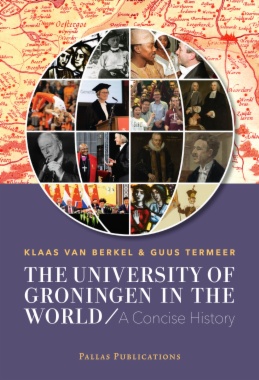The University of Groningen has been an international university since its foundation in 1614. The first professors formed a rich international community, and many students came from outside the Netherlands, especially from areas now belonging to Germany. Internationalization, a popular slogan nowadays, is therefore nothing new, but its meaning has changed over time. How did the University of Groningen grow from a provincial institution established for religious reasons into a top-100 university with 36,000 students, of whom 25% come from abroad and almost half of the academic staff is of foreign descent? What is the identity of this four-century-old university that is still strongly anchored in the northern part of the Netherlands but that also has a mind that is open to the world? The history of the university, as told by Klaas van Berkel and Guus Termeer, ends with a short paragraph on the impact of the corona crisis.
- Cover
- Contents
- Preface
- Introduction
- 1
- 2
- Enlightenment, but inmoderation (1714-1814)
- 3
- A century of extremes (1814-1914)
- 4
- War and threats (1914-1945)
- 5
- Growing pains anddemocratization (1945-1980)
- 6
- Professionalism with a touch ofidealism (1980-2000)
- 7
- The global university(2000-today)
- Acknowledgements
- Index
- About the authors

